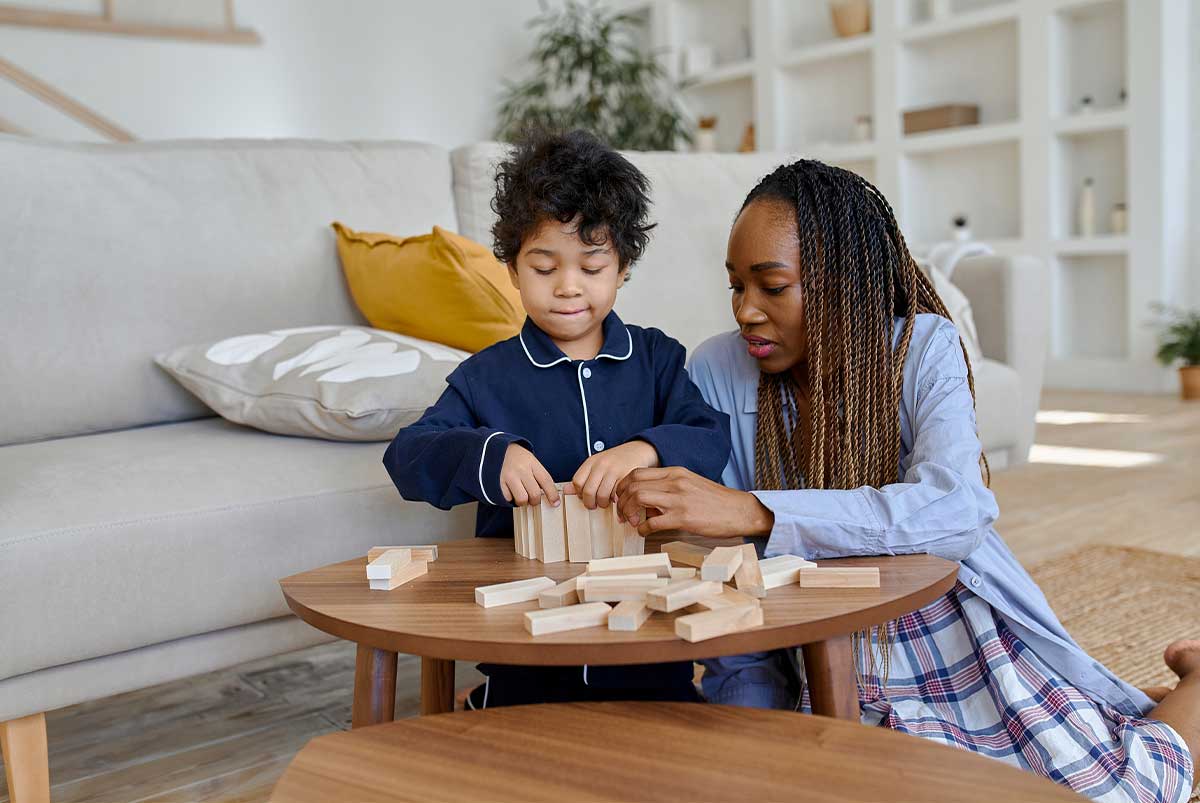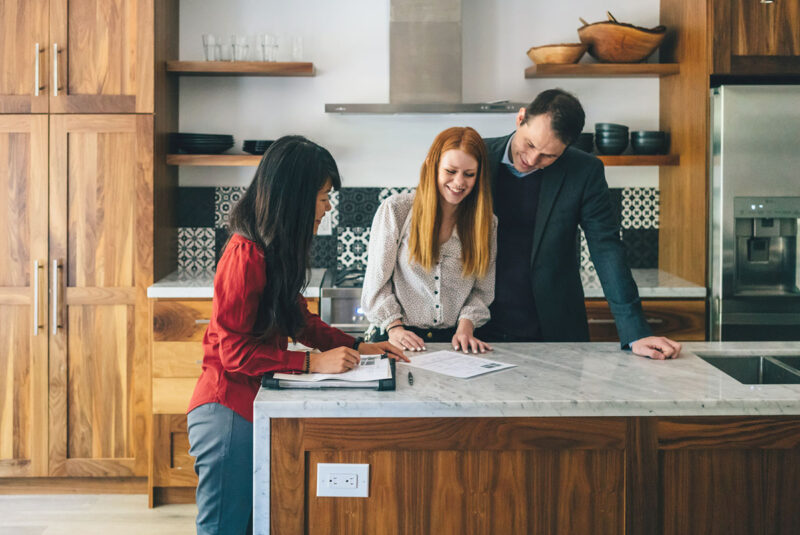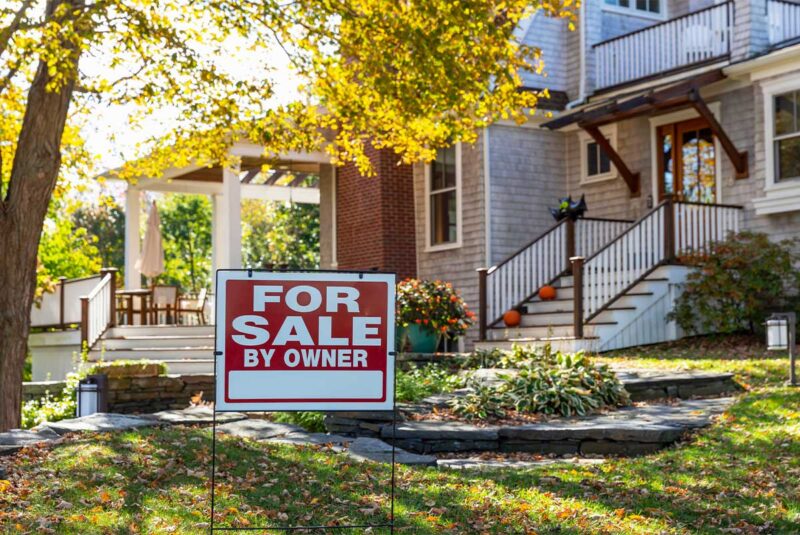Ready To Buy a Home?
Get Approved to Buy a Home
Rocket Mortgage® lets you get to house hunting sooner.
For first-time home buyers, one of the biggest dilemmas of deciding to buy a home is choosing what type of house to search for. Should you go after a starter home or a forever home?
We’ll go over the pros and cons of both options, as well as some additional considerations to help you make the best choice for your situation.
What Is a Starter Home?
Explore Your Mortgage Options
What are you looking to do?
Starter home is a term for houses people purchase because they can afford to, rather than because they love the house. They’re typically smaller, less upgraded and may be in a less desirable neighborhood, leading to a discounted price.
The idea is that by settling initially, first-time home buyers can start building equity, and down the road, they’ll be able to sell the home for a profit and move into a nicer one. People purchase starter homes with the thought of eventually moving.
A typical starter home might be a townhouse, condominium or single-family house with one or two bedrooms. While that could be enough space for some people, this may not be the case for those who want to start a family.
What Is a Forever Home?
Forever homes are houses people purchase with the intent of putting down roots and making lasting memories. In contrast to starter homes, they’re usually larger, more upgraded and in family-friendly areas.
Forever homes are long-term investments. People typically don’t purchase these homes with the idea of moving in mind. People purchasing these homes tend to look for things like good school districts for their children and the opportunity to build meaningful connections in the community.
Starter Home vs. Forever Home: Pros and Cons
If you’re wondering whether you should buy a starter home or a forever home, the answer depends on your situation. There are benefits and downsides to each option. To help you with the decision-making process, here are some important considerations:
Starter homes
PROS of a starter home👍
Starter homes are usually less expensive than forever homes. This can allow you to become a homeowner faster.
Generally, utility and maintenance costs are cheaper for smaller homes compared to larger ones. Starting out with a smaller property could save you money on a month-to-month basis.
CONS of a starter home👎
Starter homes tend to have less living and storage space than forever homes. So if your family grows after moving in, things can become even tighter.
The home might not be fully upgraded, and you’re less likely to have things like a deck or a nice firepit in the backyard. Also, the yard itself will likely be smaller, and you might have to do without a garage.
Because of the smaller size and potential for being in a less desirable area, it can be harder to sell starter homes. You could have trouble getting the asking price, or you might have to wait a long time to find a buyer.
Forever home
PROS of a forever home👍
Forever homes are a long-term investment and offer an opportunity to put down roots. Ideally, when you move into a forever home, you won’t have to worry about moving again.
Forever homes give you the chance to truly customize the space and make it your own. You can buy eclectic furniture, make your movie theater room or do essentially whatever you’d like.
Over time, the hope is that your forever home will appreciate in value faster than a starter home would. This gives you financial options, including tapping into your equity with a home equity loan.
CONS of a forever home👎
Forever homes tend to be more expensive than starter homes. This means they’ll require a larger down payment, and your monthly mortgage payment will likely be higher.
Once you move into your forever home, it can be harder to make big changes to your lifestyle. For example, if you have children in school and you’ve fully settled into the home and customized it to your liking, the potential of moving for a new job comes with a higher cost.
The larger the home, the more expensive the monthly utility bills. Also, forever homes are usually more expensive to maintain than starter homes.
Questions To Ask Before Choosing a Starter vs. Forever Home
There are tradeoffs whether you lean toward a forever home or a starter home. The best option for your situation will depend on timing and your financial circumstances. Here are some questions to help you more clearly define what you’re looking for in a home.
What can you afford?
Given unlimited funds, most of us would likely prefer a forever home. However, since most don’t have that, the cost will be a major factor in deciding which option works best. Take some time to figure out how much house you can afford.
Here are some other financial questions you should ask:
- How big is your down payment? The more you have to put down, the less your monthly payment will be and the less you’ll pay in interest. Your down payment can also determine which mortgages you qualify for.
- What mortgage do you want? Different mortgages have different requirements. For example, if you qualify for a U.S. Department of Veterans Affairs (VA) loan, you may be able to purchase a home without a down payment.
- How long do you plan to save? Determine how long it will take you to save to be able to afford the different options.
Ironing out your financial options and timeline should give you great insight into which type of house you should be looking for. For example, if you’ll need to save for 10 years to afford the style of forever home you want, a starter home might be your best option.
How long do you plan to be in the home?
If possible, it’s important to consider your timeline separately from your finances. For example, if you’re just starting out in your career and work in a field where moving is likely, it might not make the most sense to invest in a forever home.
Conversely, if you’re looking to put your kids into a school and stay there for a while, it might make sense to invest the extra capital a forever home would cost.
Do you have DIY skills?
There’s no reason a starter home can’t become a forever home, especially if you have DIY skills. If you have the vision and desire, consider buying a fixer-upper and creating your own forever home. This can be a great way to get into a dream neighborhood you couldn’t otherwise afford.
The Choice Is Yours
Whether you buy a starter home or a forever home is a personal choice. The most important thing you can do is save money and prepare yourself to make this major purchase.
Whichever type of home you choose, investing in either is a smart financial decision because it gets you into the real estate market, and you can start building equity.
If it’s hard to break into the housing market with a starter home, there’s nothing wrong with waiting until you’re ready to become a homeowner.
Take the first step toward buying a home.
Get approved. See what you qualify for. Start house hunting.
The Short Version
- Starter homes are more affordable, but they’re usually smaller, less upgraded and may be located in less desirable areas
- Forever homes are usually larger and nicer than starter homes, and people purchase them with the idea of putting down roots. They’re also more expensive
- Deciding what you can afford, how much room you need and how long you plan to live in the home will help you choose between a starter home and a forever home




